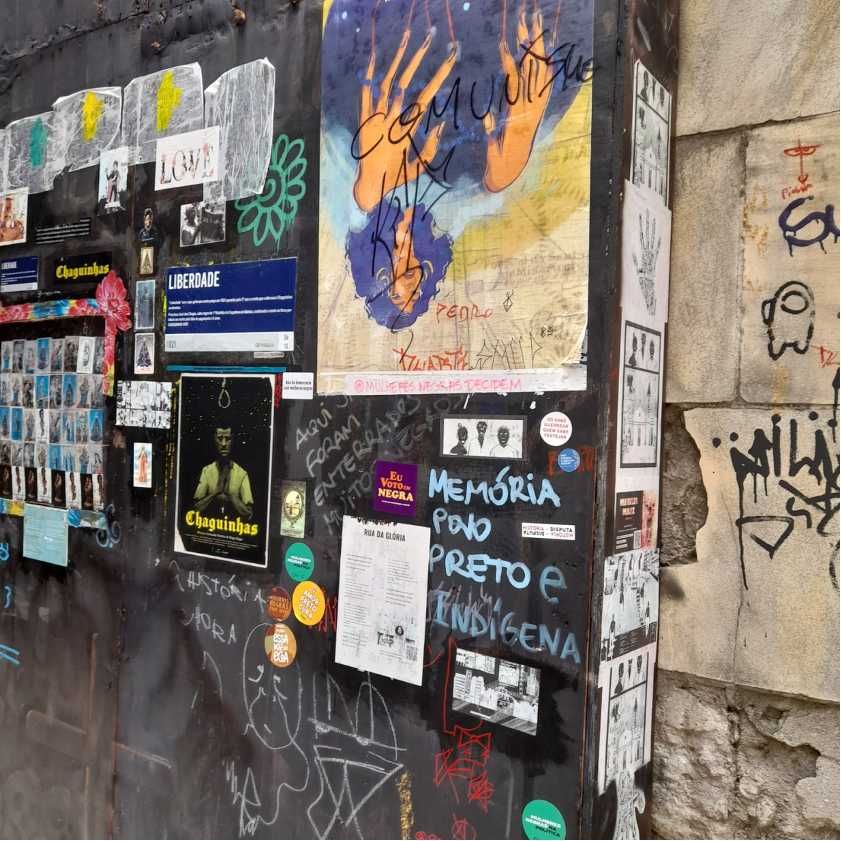Kaya De Wolff and Rebeca Lopes Cabral
“A decolonial memory turn in Brazil? In search of Black and Indigenous histories in São Paulo”
February 6, 2023, 5pm CET
Register here for this event.
In recent years, several initiatives in Brazil have set off to critically engage with the legacies of colonialism and slavery. This observation is striking since – despite the origin of the majority of the Brazilian population being rooted in Black and Indigenous cultures – vital memories of these communities have been marginalized in the official national narrative and occluded by the “myth of racial democracy”. The focus of Brazilian exhibitions, films and documentaries, academic studies, and podcasts now centers on these marginalized identities, knowledge, and memories. Facing the various projects dedicated to the memory of Black and Indigenous histories, we argue that Brazil currently witnesses a “decolonial memory turn”.
In this light, our presentation discusses how the dominant narratives how these subaltern memories are represented and narrated from and through São Paulo. We will briefly overview Brazil’s historical struggles over memory and point out some of the most relevant current social movements and political developments. Understanding that spaces are the result and fundamental agents of social dynamics, we will localize this discussion on how these memories are being reconstructed in three current projects, based on our recent field research in São Paulo:
- The work of Instituto Tebas, founded to convert an old morgue where the bones of Black slaves were found into a public memory site
- The exhibition “Futures of Memory” in the Memorial da Resistencia, which now focuses on the resistance struggles of Black communities by connecting this with the resistance movements of the politically persecuted of Brazilian dictatorship.
- The exhibition “What’s your legacy?” organized by the Museu da Pessoa (Museum of the Person) that highlights the life histories of Black and Indigenous people at the socio-cultural centre SESC Bom Retiro.
In conclusion, we will discuss the challenges of decolonizing public memories and spaces in Brazil, Latin America, and beyond.



